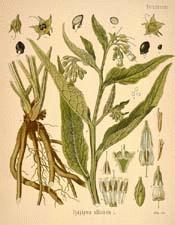‘Senna Combination Tea'
Composition Ginger root, Fennel, Catnip, Senna.
Properties Purgative, Antispasmodic, Stimulant, Carminative.
General description
Senna combination is a purgative formula. It is used as a colon stimulant to enhance elimination. The herbs are purgative, reduce smooth muscle spasms, increase the production of digestive fluids and enzymes, increase blood circulation and promote the growth of friendly colonic bacteria.
Chinese herbalist would describe this herbal combination as an internal attacking or wood reducing formula. It also reduces the fire and metal elements while enhancing the earth and water elements.
Senna combination has traditionally been used to treat constipation, dry stool, obesity, fevers, skin inflammations, jaundice and liver dysfunction.
This formula is commonly used in conjunction with Psyllium hulls, fruit juices, lactobacillus acidophilus, digestive enzyme supplements, the vitamin C family and the complex of B vitamins.
· Imbalances: indicating the use of this formula are commonly noted in the colon acupressure point located halfway between the navel and the right hip bone. Imbalances are often noted just inside the nerve wreaths surrounding each pupil. Use caution in cases of pregnancy, diarrhea and a weakened constitution.
∞ Individual Components
—Ginger root— contains aromatic compounds that increase the production of digestive fluids and enzymes, lower blood pressure, blood sugar and cholesterol. It also contains bitter compounds that reduce muscle spasms increase blood circulation and dilate blood vessels. Ginger is an excellent herbal source of trace minerals especially silicon, magnesium, and manganese. It has been used to treat nausea, motion sickness, flatulence, colds, coughs, indigestion, fevers, vomiting, diarrhea, chronic bronchitis and cold hands and feet.
—Catnip— contains aromatic compounds that have a sedative effect, relieve smooth muscle spasms and induce sweating. It has been used to treat coughs, colds, anxiety, colic, fevers, influenza, lung congestion and nausea.
—Fennel seed— contains aromatic compounds that stimulate the production of digestive fluids, relieve inflammation, are antiseptic, make one breathe deeply and more often and increase the flow of urine. It has been used to treat indigestion, dyspepsia, anorexia, colic, flatulence, coughs and colds.
—Senna leaf— contains bitter compounds that are purgative and increase the flow of bile. It is an excellent herbal source of vitamin B-1, B-2, vitamin C and niacin. Senna has been to treat constipation, obesity, gout, jaundice and inflammatory skin condition.
—Psyllium hulls— is used as a diuretic, treat bloody urine, coughing and high blood pressure, a bulk laxative, peristaltic activity in the bowel, candida infections and chronic yeast infections.
—Lactobacillus acidophilus— is considered a probiotic or “friendly” bacteria. These types of healthy bacteria inhabit the intestines and vagina and protect against some unhealthy organisms. During digestion, it assists in the production of niacin, folic acid, and pyridoxine.
—Digestive enzyme supplements— enzyme supplements have been shown to increase the production of enzymes in the liver and the organs of digestion, especially the bowel. This increase the ability of the body to metabolize and eliminate toxins. Its reputation as an adaptogens is probably linked to these protecting qualities.
—Vitamin C— is an antioxidant that is required for at least three hundred metabolic functions in the body, including tissue growth and repair, adrenal gland function, and healthy gums. It also aids in the production of antistress hormones and interferon, an important immune system protein, and is needed for the metabolism of folic acid, tyrosine, and phenylalanine. Studies have shown that taking vitamin C can reduce symptoms of asthma. It protects against the harmful effects of pollution, helps to prevent cancer, protects against infection, and enhances immunity. Vitamin C increases the absorption of iron. It can combine with toxic substances, such as certain heavy metals, and render them harmless so that they can be eliminated from the body.
—Vitamin B complex— help to maintain the health of the nerves, skin, eyes, hair, liver, and mouth, as well as healthy muscle tone in the gastrointestinal tract and proper brain function.
—References— “Medical Herbalism” The Science and Practice of Herbal Medicine By – David Hoffmann, FNIMH, AHG; ISBN: 0-89281-749-6 Copyright 2003
—References— “Nutritional Herbology” A Reference Guide to Herbs By – Mark Pedersen; ISBN: 1-885653-07-7 Copyright 2008
—References— “Prescription for Nutritional Healing” Fourth Edition a practical A to Z reference to drug-free remedies using vitamins, minerals, herbs and food supplements By – Phyllis A. Balch, CNC; ISBN: 1-58333-236-7 Copyright 2006
—References— Wikipedia.org
—References—
—References—
Recipe: Per teapot full – Equal Parts of – Ginger root, Catnip, Fennel seeds, Senna leaf. Steep 5 to 10 minute add honey.
Recipe: Per teapot full – Equal Parts of – Ginger root, Catnip, Fennel seeds, Senna leaf and add 1 teaspoon of any one of these herbs [Psyllium or fruit juice]. Steep 5 to 10 minute add honey.
Recipe:
Recipe:

| Note: Information and statements about the products on this site have not been evaluated by the Food and Drug Administration and are not intended to diagnose, treat, sure, or prevent any disease. You should not use the information contained herein for diagnosing or treating a health problem or disease, or prescribing any medication. If you have or suspect that you have a medical problem, promptly contact your health care provider. Send us an email |  |
Generated on February 28, 2009
Updated on October 14, 2009



